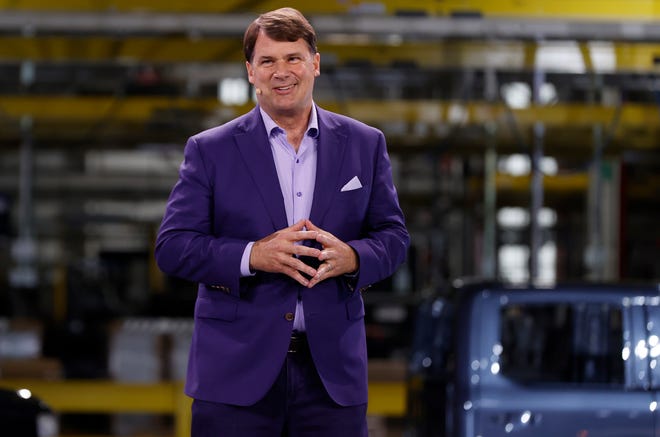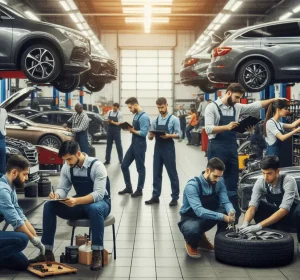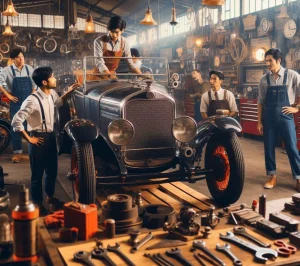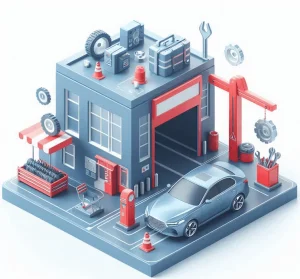Table of Contents
Ford CEO Jim Farley said Wednesday consumers should plan to see dramatic change in the near term as companies compete amid the shift to battery-operated vehicles.
“We’ve got to go to nonnegotiated price. We’ve got to go to 100% online. There’s no inventory (at dealerships), it goes directly to the customer. And 100% remote pickup and delivery,” he said in New York during Bernstein’s 38th Annual Strategic Decisions Conference streamed live.
“Then we have this opportunity to use our physical presence to outperform” competitors, Farley said. “I think our dealers can do it. But the standards are going to be brutal. They’re going to be very different than they are today.”
More:Ford F-150 Lightning dealer backs down from $10,000 markup
More:Ford to give buyers 14 days, 1,000 miles to return used vehicles for money back
But that’s not all.

He teased that the company sees potentially huge profits in building an electric vehicle for ride-hailing services Lyft and Uber.
“Shared mobility revenue will grow a lot,” Farley said. “No one has ever built a product for them.”
Meanwhile, the way car companies generate revenue may change, too — like renting cars for limited use and allowing customers to pay per mile or per day, Farley said.
He believes a Mustang Mach-E owner may want to use a Ford F-150 Lightning for the weekend.
Farley forecast dramatic industry changes, including:
- “We’re going to see very large consolidation and big changes.”
- “The Chinese will become more important … China EV makers, if you look at a $25,000 bill of materials for an EV in China, it’s probably the best in the world. And I think they’re incredibly undervalued. They haven’t shown any interest in exporting other than Norway.”
- “There’s a shakeout coming. And I feel like that shakeout is going to favor many of the Chinese new players.”
- “Old” automakers “absolutely will get consolidated. There will be some big winners, some people that transition, some won’t. Many of the small players cannot afford to make this transition.”
Many automakers are not investing in the software and technology required to transition, and while old suppliers will consolidate, new suppliers will emerge, he said.
“It’s going to accelerate,” Farley said. “With capital tightening, there are new constraints that will make the new player better. But some of them won’t be able to afford to fulfill their ambitions. Because they can’t raise capital.”
The next three or four years will shape the automotive future. Startups like Tesla will be “forced to solve tough problems like Tesla did” with limited access to money.
Epic failure
Joint ventures, Farley said, too often end in failure. Acquisitions will play a key role.
“Partnerships are hard. We’ve been in business 118 years, and we’ve probably had one partnership that worked really well, Ford Otosan in Turkey,” Farley said. “These are really super hard things to do. Often, they come down to leaders, the character of the leaders, and if those leaders change and they retire or leave, the whole thing can fall apart.”
Consumer savings
The opportunity for profit within the next few years can’t be overstated, he said. “I think this is the most exciting kind of land grab of revenue in our industry since the Model T. I really believe that.”
At the same time, Farley said, “I believe our industry is definitely heading to a huge price war.”
The retail price war is already happening in China. Half of all electric vehicles in the world are sold there, and the most popular vehicle is an $8,000 van, he said.
‘Angels sung’
When the second quarter profit in 2021 came out from Tesla, “it totally changed my world. It was an epiphany. It was, like, the angels sung.”
It was confirmation that electric vehicles can make big money, Farley said.
The electric vehicle maker established market dominance early, he noted. And CEO Elon Musk, who announced a year ago he was legally changing his title to “Technoking” of Tesla.
“The magic of Tesla,” Farley said, “is because they were capital constrained, they didn’t have the money. They did things that we are too lazy to do.”
More:Jim Farley praises Tesla CEO Elon Musk — social media goes bonkers
More:Elon Musk trolls GM, Chrysler on Twitter. Ford CEO responds with 1 word.
Ford estimates the company’s distribution model is about $2,000 per vehicle more expensive than Tesla, including one-third being inventory sitting on dealer lots, one-third or $500 to $600 per vehicle on public advertising.
Stayin’ alive
Sales and reservations of the Ford F-150 Lightning and the Mustang Mach-E SUV all happened without advertising campaigns, Farley noted.
Meanwhile, Ford is working now with its dealers to focus on specialized service in a changing market. Farley noted that Tesla has dealerships in Norway, unlike the U.S., because customers in Norway wanted more service not sales.
Citing Target vs. online retailer Amazon, Farley noted that customers want in-person customer assistance. The brick-and-mortar company expanded services and added an important digital component to remain competitive.
“Target could have gone away and didn’t,” he said.
Super Duty remains
Farley emphasized that Ford plans to continue investing in gasoline-powered vehicles, noting that the Super Duty pickup trucks generate huge revenue for the company and battery technology isn’t yet advanced enough to pivot.
“If you’re a Super Duty customer towing 10,000 pounds in Montana or on the north slope of Alaska,” he said. “An electric vehicle is an awful solution, the batteries are too heavy.”
Still, Ford is spending $5 billion on battery electric vehicles in 2022, Ford chief financial officer John Lawler said in a taped message played at the conference. “The stakes are high but so are our ambitions.”
More:Ford CEO says automaker is sold out of electric vehicles: What it really means
While Ford focuses on its iconic products, vehicles such as the Ford Edge and Escape will give way to Mustang and Bronco, Farley said.
An $8,000 van
The sheer volume of money needed to compete in the electric vehicle industry will eliminate some competitors, Farley said. But he said Chinese EV makers are “incredibly undervalued.”
People drive shorter distances in China than in the U.S. or western Europe, so they don’t need as big of a battery.
“But the elegance of their engineering is something I’m very taken with,” he said, noting that the companies get state support and are rewarded by the government for employing a lot of workers. Consumers in Asia are much more advanced than consumers in North America when it comes to digital experience in the vehicle.
“I don’t think they have the same pressure on economics that we do,” Farley said.
Ford is the largest employer of hourly workers in the auto industry in the U.S.
‘Messed up’
Farley is rethinking how everything is done and has been done, having seen that Mach-E ads needed to be pulled because they were sold out for two years, he said.
“Our model is messed up. We spend $600 or $700 on the vehicle to promote it and we spend nothing post-warranty on the customer experience. The problem is, on a parts business, which historically has been very profitable, we only get, maybe, only 10 or 20% of the customers come back to us.”
Super Bowl silence
It would be better to provide customer experiences such as complimentary vehicle detailing and software updates, he said. But the key is building loyalty among current customers “instead of doing Super Bowl ads.”
More:GM’s story behind star-studded ‘Austin Powers’ Super Bowl ad
He emphasized, “If you ever see Ford Motor Co. doing a Super Bowl ad on our electric vehicles, sell the stock.”
Battery chemistry
Farley emphasized the need to reduce spending on defect repairs.
“We have to be radical on our quality,” he said.
In addition, Farley talked about cost savings related to reengineering battery chemistry so that it uses less nickel and cobalt — and more iron and phosphate, ingredients that are cheaper and more abundant.
But all these changes require getting the best talent, including leaders such as Doug Field from Apple and Tesla, “even if they make 10 times what I do,” Farley said.
“I believe there’s a way for us,” he said. “I feel so much better than even six months ago, because I know, I know exactly what we have to do. It’s down to execution.”
More:Ford specialist has plan to overhaul culture, stop warranty claim finger-pointing
More:Ford’s plan to cut $3B in waste will funnel money from gas vehicles to fund electric, tech
More:Jim Farley gets personal with Tom Brady, Jimmy Kimmel in top-secret ‘Drive’ podcast
Contact Phoebe Wall Howard:313-618-1034 or[email protected].Follow her on Twitter@phoebesaid. Read more on Ford and sign up for our autos newsletter.





More Stories
Evanston man drove wrong way down street with suspended license, had gun in his possession: police
Mercedes-Benz SLS AMG GT Final Edition in Mars Red
The Roadster | The Jalopy Journal The Jalopy Journal